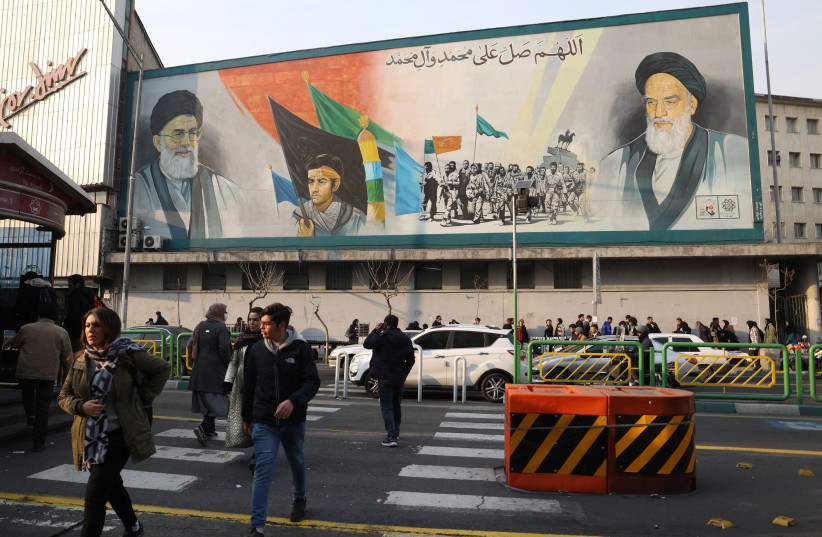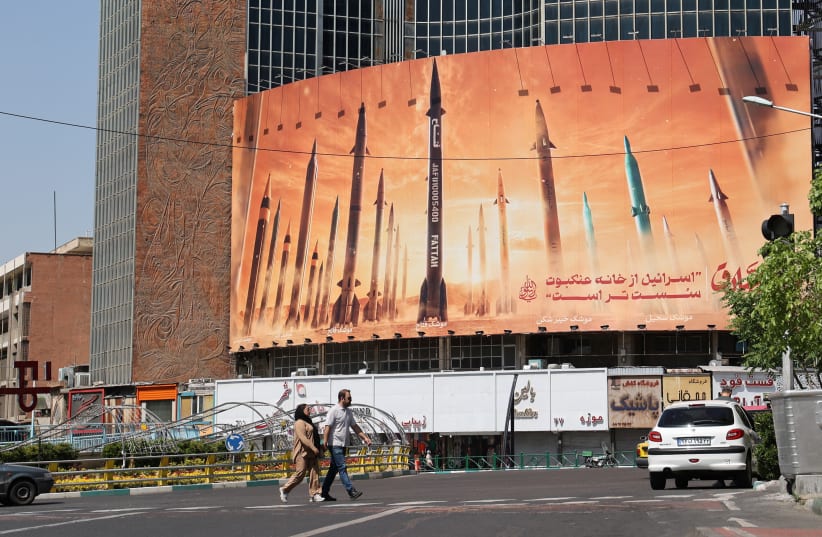In these traumatic days, the war casts a shadow over the skies of Israel and Iran like an ugly specter. The civilized, cultured, and authentic peoples of Israel and Iran are not inclined toward war. The government of Israel has always distinguished the people of Iran from the thuggish regime in Tehran. Israel has consistently supported and encouraged the Iranian people in their internal movements against the despotism of the mullahs and toward regime change.
However, the serious problem lies in the presence of a destructive regime in Iran, which has held 88 million Iranians hostage. An outlaw regime with a destructive ideology, whose survival and existence depend on chaos and upheaval.
In these days, the vulgar and corrupt mullahs are leading Iran into a disastrous phase, fanning the flames of war to once again, through the imposition of calamity, burn everything. The mission of the mullahs from day one has been to foster poverty, destruction, and terrorism, and they have plunged not only Iran but the entire Middle East into chaos and anarchy.
At this catastrophic time, the mullahs, with their unique brand of psychosis and empty destructive ideology, have – in addition to provoking their transnational terrorism network through the Quds Force – fired missiles from within Iranian territory toward the land of the Jews, aiming at causing peak destruction and slaughter. Albeit, the military power of Iran has been mockingly ridiculed globally.
On the other hand, for the survival and life of Israel, the destruction of nuclear, missile, drone facilities, etc., related to the mullahs has become a top priority for its core government.
Over the more than half-century that the Pahlavi shahs ruled Iran (1925-1979), relations between Jews and Iranians reached their zenith, and both nations fought together against common enemies after the world wars and during the many years of the Cold War. Additionally, during that period, the Middle East and the Persian Gulf enjoyed stability, peace, and a specific logical progression.
Legacy of conflict


But from the endless winter of 1979 to today, the mullahs in Tehran have shown their enmity toward Israel, creating more than 21 terrorist groups and, most importantly, not shy of committing any crime against the people of Israel and those of Iran, nor being held accountable or desisting in any way. Whenever the United States and Israel protested the atrocities of the Islamic Republic, it responded with continued anti-Israel and anti-Jewish propaganda, propped up by the Russian and Chinese axis of evil.
If Iran had not been derailed and the monarchical system of 2,500 years had not been pushed into the abyss, today Prince Reza Pahlavi would have been the lawful king of Iran, and the Middle East, Israel, and Iran would have a different destiny.
For the people of Iran and Israel, it is crystal clear that this unwelcome war has nothing to do with the national interests and benefits of the Iranian people. The fire of this war will consume everything, until the complete collapse of the Islamic caliphate structure of the “Guardianship of the Islamic Jurist” [a Twelve Shia Islamic law concept] Israel’s attack on nuclear, missile, drone, and military facilities of the IRGC thugs aims to cripple representations of the most vile, bloodiest, most corrupt, and most hated ruler in the Middle East. On the other hand, the showy mullah, when he loses power, will resort to forming underground terrorist cells, and a bloody and tumultuous transitional period awaits the country.
Israel’s response to Iran will have surprising consequences. Many hated and notorious figures of the Revolutionary Guards will be eliminated and the government will be engulfed in a terrifying whirlpool. The people of Iran do not support their destructive government. Perhaps the only person who can prevent a bloodbath in Iran due to his credibility, influence, authority, popularity, and legitimacy is the crown prince himself.
The despised and isolated heads of the Guardianship of the Islamic Jurist apparatus – once Khomeini and now Khamenei – are concerned only with preserving their own power and benefits, not bothered about killing people and destroying their homes.
Perhaps Israel’s response to the warmongering and seditious mullahs in Tehran will be the beginning of a series of changes within Iran, and dictator Khamenei’s son will not come to power as successor to his incompetent and bloodthirsty father.
If Prince Pahlavi ascends the throne in the process of a regime change in Iran, the Middle East will once again move towards stability and peace. What a beautiful Middle East will emerge when the savage mullahs are no longer in power, when there is no sign of radical Islam and Islamic terrorism, and the two nations of Israel and Iran can – once again – plan a better future together, without war, conflict, strife, or chaos.
The writer is a counterterrorism analyst and Middle East studies researcher based in Washington, with a particular focus on Iran and ethnic conflicts in the region. His newly-published book is The Black Shabbat, published in the US. Follow him on X @EQFARD and at erfanfard.com.
